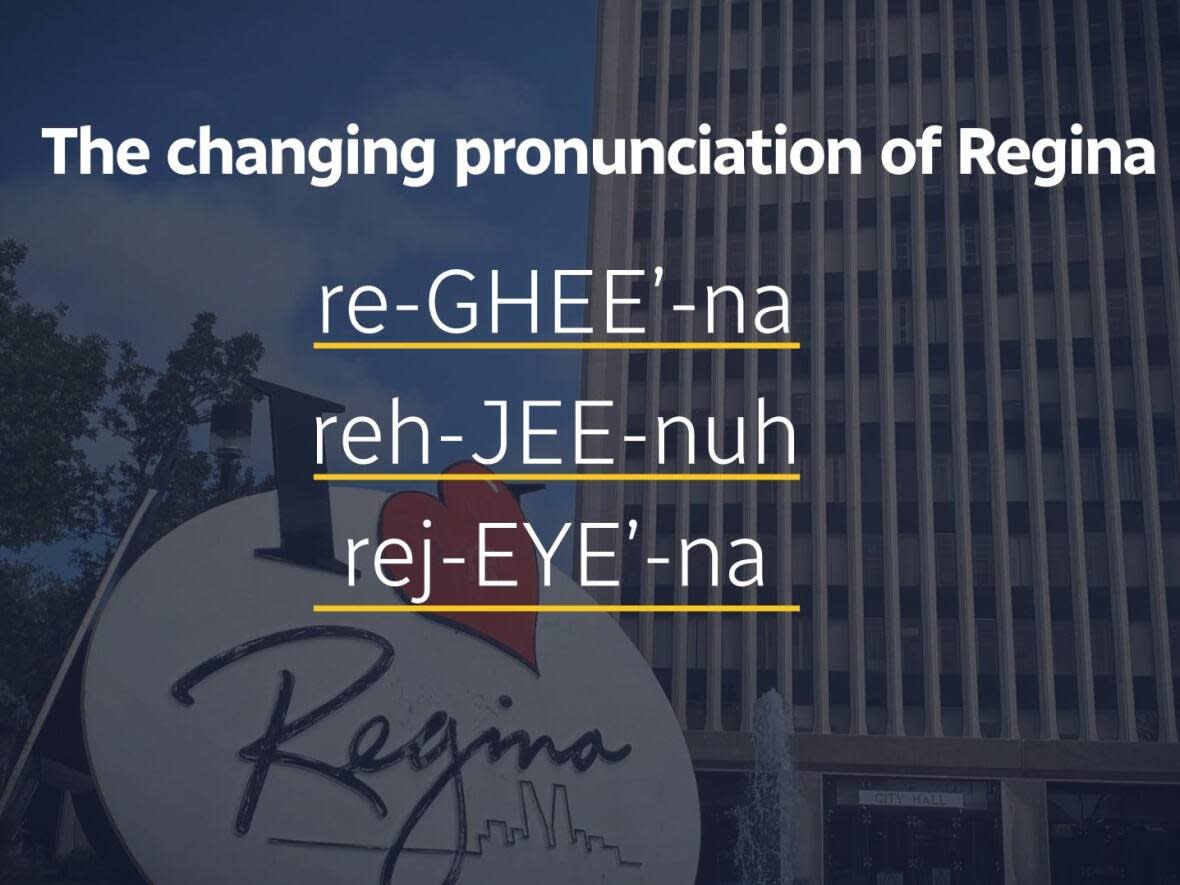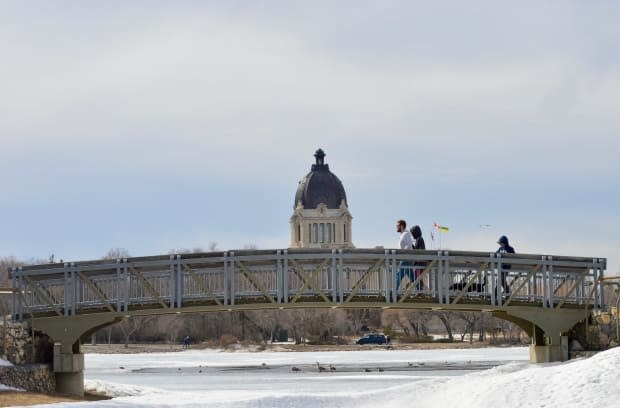Why is Regina's name pronounced like that?

Regina may be known by many for Wascana Park, or its role as Saskatchewan's provincial capital, but over the last week the city has drawn international attention for all of the wrong reasons.
Last week, an rebrand of the city's tourism organization to Experience Regina blew up on social media as slogans such as "Show us your Regina" and "The city that rhymes with fun" received backlash.
Both of the phrases were attempts to play off the way that Regina sounds similar to vagina.
It raised the question — why is the city's name pronounced like that?
LISTEN| Why do we say our city's name the way we do? We ask a linguistics professor:
Why do we pronounce Regina the way we do, anyway? We ask a linguistics professor from @usask https://t.co/OoRmobWc8r
— Stefani Langenegger (@SLangeneggerCBC) March 24, 2023
One expert says the origins of Regina's name are not complicated, but they illustrate how languages and words can change over time.
Jesse Stewart is an associate professor of linguistics at the University of Saskatchewan.
"Regina is of Latin origin and it means queen," he told CBC in an interview Friday.
The classical Latin pronunciation of Regina had a rolled "R" as well as a strong "G" sound in the middle. Phonetically it would look something like "re-GHEE'-na."

That pronunciation is rarely used anymore because of a process called lenition, the softening of the articulation of a consonant, Stewart said.
The word was eventually modified to sound phonetically like reh-JEE-nuh. That pronunciation can still be found in other latin languages like French or Spanish.
Then, between the 15th and 18th centuries, the English language underwent a massive shift in its vowel system which eventually produced the way Saskatchewan residents currently pronounce Regina phonetically as "rej-EYE'-na."
"All languages are constantly changing and evolving. The process is relatively slow at times," Stewart said.
"So oftentimes, like within our generation, we don't see these crazy changes and pronunciation, but over an extended period of time there is oftentimes quite a bit of change."
Indigenous people have lived on the Prairies for thousands of years, and the area where Regina is now was once known in Cree as "oskana kâ-asastêki,"or "the place where the bones are piled."
European settlers would eventually translate the word to Pile of Bones, a name used up until 1882.
At that point, Princess Louise, the wife of the local Governor General, suggested renaming the town in honour of her mother: Queen Victoria.
"In 1882, Regina (rej-EYE'-na) was the proper term used in England, and was the official title of Queen Victoria, and of course you don't want to offend Her Majesty by incorrectly pronouncing her title, and that's how we ended up with Regina (rej-EYE'-na)," Stewart said.
WATCH| Regina's tourism campaign gone wrong:
The linguistics professor said that the pronunciation of the word is far from settled, but that there is no "right way" to say a word.
It all depends on the local dialect, he said.
"I would still say that Regina (rej-EYE'-na) is pronounced as Regina (rej-EYE'-na). That's how the majority of people from the city say it, and that is the current pronunciation," Stewart said.

He compared the situation to a never-ending dispute of how to pronounce the red fruit in your salad as "toe-MAY-toe" or "toe-MAH-toe."
Stewart believes that the as words continue to shift and evolve we could potentially see Regina change its pronunciation once again.
But for now, Regina (rej-EYE'-na) is here in Saskatchewan to stay.


